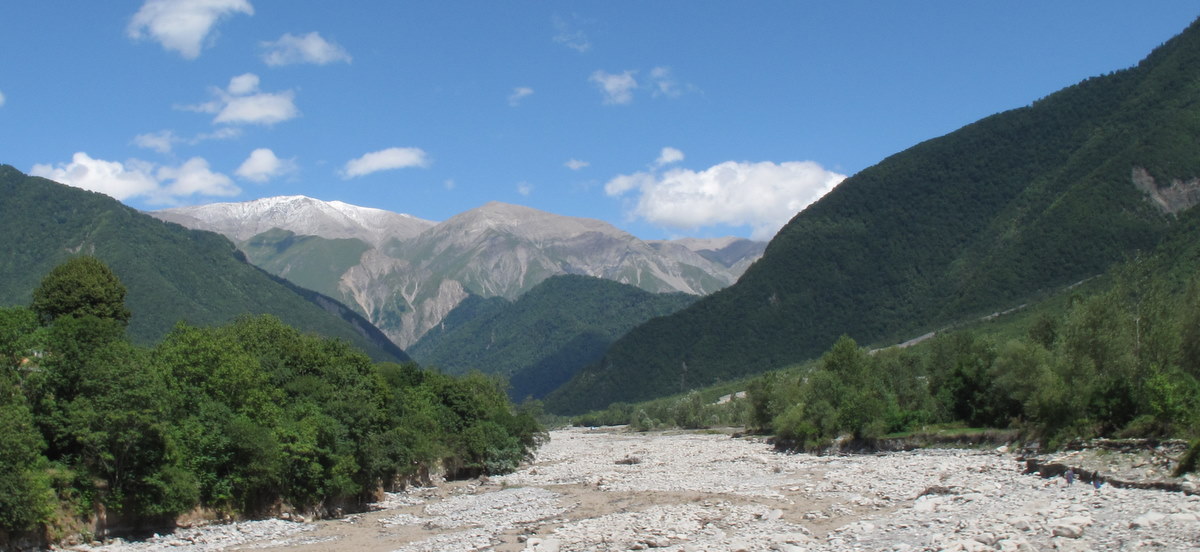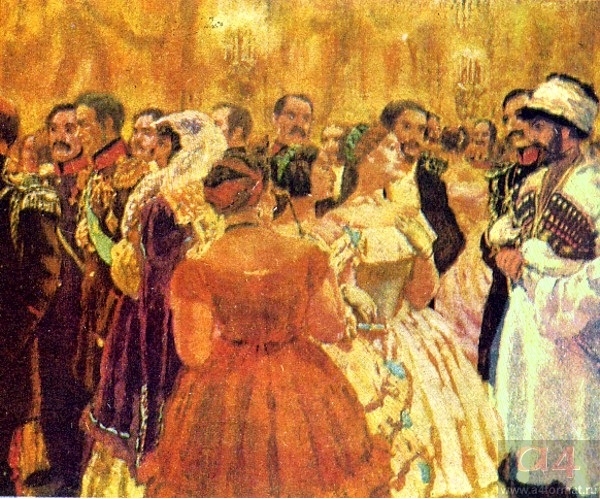Introduction
Heart of Darkness is a novella by Joseph Conrad – you’ve probably heard of it. Based, at least in part, on his own experiences, Conrad’s tale tells the story of a sailor, Marlow, who rides up the Congo river towards the end of the 19th century in search of the mysterious Kurtz. One evening much later, while waiting for the tide to change on a boat with his friends, Marlow tells his story. The horrors of what Marlow finds – Imperialism at its very worst – have inspired countless works of art, including the film Apocalypse Now! and the game Spec Ops: The Line.
But this book does not need adaptation. It remains, even now, a frightening, monstrous, and brilliant story in its own right. And this time, my third time reading it, it shocked me more than ever.
Kurtz
Kurtz, the head of the farthest station along the Congo River, is at the centre of Heart of Darkness like Nostromo is at the centre of his own novel. But if anything Heart of Darkness is the more adventurous work when it comes to characterisation. We hear of Kurtz slowly, as Marlow heads up the Congo river. “Oh, he will go far, very far” we hear from one man. “He is a prodigy,” we hear from another. Once or twice we hear Kurtz himself, from a year ago, his words filtered through someone else. At first positive, later on the reports grow more concerning. It is impossible to know what to believe. What is impressive is the way that we are led, initially, to expect to see in Kurtz the model colonialist. It makes the revelation that he has gone mad all the more horrific.
We find a report, written by him, filled with the hope for positive change that others had so confidently placed in him. He writes that we “must necessarily appear to them [savages] in the nature of supernatural beings – we approach them with the might of a deity”. “By the simple exercise of our will we can exert a power for good practically unbounded”. But Kurtz, ultimately, does not exert his power for good. Perhaps he is too taken by the power itself. In a wonderful image, we find that at the bottom of his report he has scrawled the words “exterminate all the brutes!”. It is a wonderful image because we go from the sensible, measured, and hopeful report to the brutal world that Kurtz actually encountered – or made for himself.
Loneliness
“We live, as we dream – alone” Marlow’s words stand at the centre of the book, of its feeling. That Heart of Darkness is not a cheery book is no surprise, but that its bleakness takes the form of loneliness is nonetheless surprising. Marlow’s time in the Congo is marked by his dislocation from other human beings. The other people on the steamer he commands – black and white – have no connection to him. The whites are disgraceful looters, ready to shoot at the slightest excuse and steal without a moment’s thought. As for the blacks Marlow, prejudiced as most of us were back then, has no desire to speak with them, whatever his sympathy for their suffering.
He is alone, and I think it is loneliness that destroys us far from home, not anything else. Kurtz has left “civilization”, yes, but he has also left people: “Being alone in the wilderness, [Kurtz’s soul] had looked within itself, and, by heavens! I tell you it had gone mad!” To the Africans he is a God, not a man – he and they can have no dialogue. The images Marlow uses to describe Kurtz are characterised by their suggestions of distance and isolation. “I looked at him as you peer down at a man who is lying at the bottom of a precipice where the sun never shines”. The way that people describe him also distances us from the real man. It’s so hard to see who he really is because we are eternally filtering him through other people’s ideas, and then finally through Marlow’s own increasingly cagey narration.
Conrad’s Style
Conrad’s style, I now realise, contributes greatly to this feeling of loneliness and detachment. Yes, it is turgid, swampy – Conrad is guilty of never leaving a noun without a grave and lumpy adjective. But it is precisely this feeling of swampiness that slows the narrative down, and allows it, at times, to stop altogether, presenting simply an image in all its horror:
“There was a pause of profound stillness, then a match flared, and Marlow’s lean face appeared – worn, hollow, with downward folds and dropped eyelids, with an aspect of concentrated attention; and as he took vigorous draws at his pipe, it seemed to retreat and advance out of the night in the regular flicker of the tiny flame. The match went out.”
Perhaps horror is not right word. Marlow here is frozen apart from us, the only light in the darkness of the boat where he narrates his story. We see him, but even though the image of the face is a close-up, we feel that the distance between us and him is unbridgeable. So it is, Conrad seems to say, between any of us. A photo, a snapshot, is necessarily limited – though we see something, there is no life in it. And there is no way of putting life in it, short of the imagination. And imagination is always personal, subjective, and therefore a lie.
Work
What is it that destroys us? That is the central question of Heart of Darkness. Chinua Achebe might say that Conrad, the “bloody racist”, saw an Africa-made-other and Africans-made-savages to be the source of Kurtz’s decline and Marlow’s teetering. But the truth is certainly more complicated than that, if that is the case at all. I think work, and an idea of work, fits into this. Towards the end of the novella’s first part Marlow says “I don’t like work – no man does – but I like what is in the work – the chance to find yourself.” His at this point is a naïve view. It mistakenly assumes that the self we find in work is necessarily our “true self.” It allows Marlow to be sucked into the same admiration of Kurtz as many other characters are guilty of.
Kurtz gathers a great deal of ivory – he is, by some measure, a great worker. But he is also, in Marlow’s sense, himself. His life has an apparent authenticity that Marlow’s hesitant, questioning life does not. The constant reverence with which others talk about Kurtz’s ideals only emphasises this. Kurtz is a thinker, a philosopher. Everyone expects great things of him. The belief he inspires is dangerous because for those who have no beliefs, he is someone to be envied, followed, or perhaps even worshipped.
It is only later that Marlow begins to see the full meaninglessness of all that work – when he comes to find Kurtz’s spoils – “Ivory? I should think so. Heaps of it, stacks of it. The old mud shanty was bursting with it. You would think there was not a single tusk left either above or below ground in the whole country”. The goal has been achieved, the ivory gotten, and yet we are still in a mud shanty, and Kurtz is ill. And all the dead Africans will never get their lives back.
Early on, in the stations closer to the coast, Marlow encountered people without ideas of their own, simply scheming and hoping to gain money. There is nothing noble in that either. What Heart of Darkness does quite well, perhaps without realising it, is demonstrate the sheer bankruptcy of the colonial project. Kurtz, the idealist, becomes a monster and forgets whatever mighty aims had once motivated him in favour of slaughter, while the rest are so concerned only with enriching themselves that they care not for what happens to the Africans around them, so long as they get paid. Both Kurtz and the others ultimately come to see people as means, rather than ends.
Marlow
And Marlow? Marlow can only observe, report back to us. He is overwhelmed by the world he discovers – by the strangeness of Africa and its people, black and white. He achieves nothing at all except his own survival, and even that is tainted in its way by his own complicity in Kurtz’s world. Heart of Darkness simply ends. Marlow meets Kurtz’s intended wife and hands over his final papers, but he fails to tell her the truth of his life in the Congo. His final action in the story is one of cowardice – or perhaps of kindness. In not telling her of Kurtz’s breakdown or challenging her ideas of him Marlow continues to let the myth of the noble colonist survive to destroy further lives.
Towards the end I kept coming back to Yeats. “The best lack all conviction, while the worst are filled with a passionate intensity”. What is frightening about Heart of Darkness for me, an educated Westerner, is the paradox of those lines. Everyone truly believes that Kurtz is a great man with a great future before him. His passion, his beliefs, are contagious. And yet this man, who should be the best, turns out to be the worst of us. And if he is the worst, where does that leave the rest of us? Useless, weak, able only to not do evil ourselves, we have not the strength to stop it. We are the bankrupt heirs to a bankrupt world.
When I look inside myself I see very little to cheer me. Hatred, violence, and despair are at the heart of my soul. I do not know another’s heart upon this earth; I feel the sheer loneliness that Marlow’s story speaks of. So in the end I can only assume that others are just the same, constantly engaged in the battle for their own souls, restrained from committing horrors only by their flagging willpower and fear of the shame that comes from turning away from civilisation and their fellows. It is not a pretty picture. I am perhaps being dramatic. But also, in a way, honest too.
Conclusion
“Droll thing life is – that mysterious arrangement of merciless logic for a futile purpose. The most you can hope for is some knowledge of yourself – that comes too late – a crop of unextinguishable regrets.”
On this blog, unconsciously perhaps, I prefer to write about books and stories that are less well known. With many books, I have a feeling that everything has already been said. Heart of Darkness is certainly such a book. But I have felt this book. It is really quite extraordinary how, the third time through, Conrad’s story has affected me. Chinua Achebe lamented that Conrad had turned all Africa into “props for the break-up of one petty European mind”. If I wanted to argue with him, this post would look very different. I have a petty mind, a petty European mind. I cannot say whether this book speaks to others as it does to me. But for me it has been like a bolt of lightning, a frightening horrific flash of knowledge. But in that that horror – of all I am, of all I may be – there is something else:
There is joy. Heart of Darkness is absolutely fantastic literature and I can’t wait to read it and love it again.
For more Conrad, I have a piece on Nostromo. For another book which also looks at our inner darkness, John Williams’s Butcher’s Crossing is great too.


